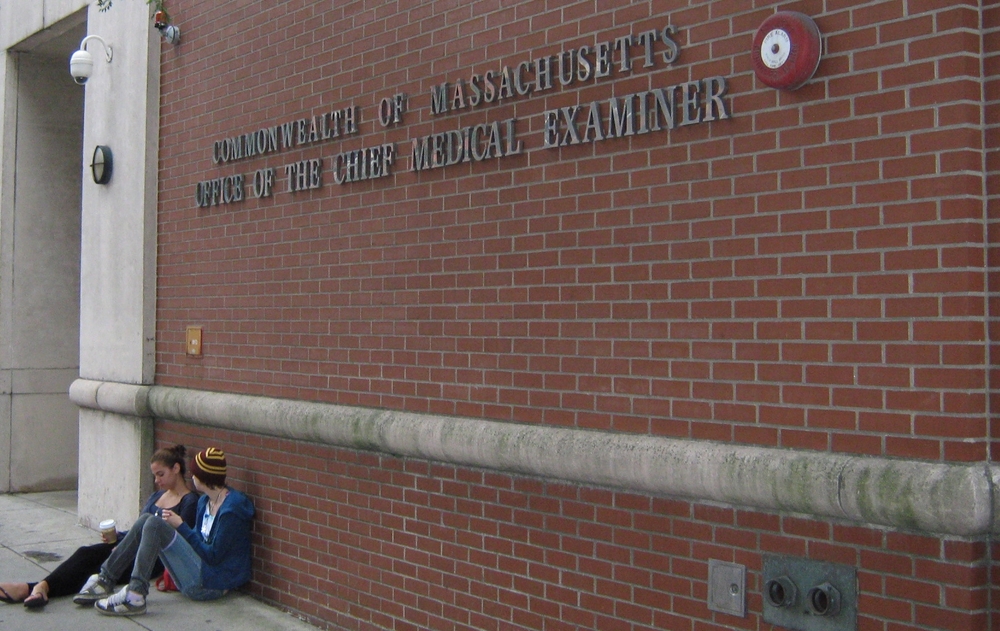When a Character Takes on a Life of His Own
/
I had an interesting discussion with a co-worker a week or so ago. We were chatting about books and writing (as we so often do) and she asked if I’d ever had a character take on a life of its own and go in a direction I didn’t originally anticipate. I was about to answer ‘no, we plan too much for that’, when I realized it had happened to us in the form of Medical Examiner Dr. Edward Rowe.
Rowe was introduced as a minor character in our first series book, DEAD, WITHOUT A STONE TO TELL IT. When a murder is committed, clearly an autopsy needs to be done, so we always planned for someone to fill this role. It was only when I went down to Boston on one of my research trips and learned how budget constraints actually affected the Office of the Medical Examiner that Rowe really started to come into his own. The truth of the matter in Massachusetts is they don’t send out a medical examiner or coroner to see the body in situ following a suspicious death; they simply don’t have the budget to support that. Instead, techs go out, collect the body and bring it back to the morgue in south Boston to be autopsied at a later time. It’s an incredibly problematic technique that we illustrated in an early scene between Matt and Leigh:
A few minutes later, Leigh came back to stand beside Matt. “They’re on their way. They understand that we’re in a hurry, so they’ll get here as fast as possible. I also called the M.E.’s office to keep Rowe in the loop.”
“Does he want to check out the site before we start?”
“Rowe?” She started to turn away. “He and his staff don’t come out to sites.”
Matt reached out, catching her arm to stop her. “What do you mean ‘they don’t come out to sites’? Then who does liver temp, lividity, and rigor to determine time of death in a fresh victim?”
“No one.”
“What?”
Leigh shook off his hand. “Jurisdictions that can afford it send the M.E. or an assistant to a crime scene to do an on-site examination of the body to help establish time of death. Unfortunately, the Commonwealth of Massachusetts doesn’t have that in the budget.”
“Then who comes out to get the body?”
“The M.E.’s office will send a couple of techs to properly bag the body and transport it to the morgue. Once there, they do as-is photos, take fingerprints, and then toe-tag the body before storing it in the cooler. And that’s all they do until the autopsy, which can be days later. But that’s not all.”
“I can’t believe it. There’s more?”
“They base time of death on L.S.A.—the time the victim was last seen alive.”
Matt gaped at her in disbelief. “That’s incredibly inaccurate.”
“I know. So does Rowe. He’s well aware that they’re losing convictions because they can’t nail down time of death more precisely. He’s argued for additional funding to cover this for years, but no one is listening. This is just the reality of what the budget will allow and the constraints we have to work with. Anyway, when it comes to this particular case, Rowe will fully review all photos, evidence reports, and your written report as soon as it hits his desk, and will consult with you personally at that time.”
“I’m . . . appalled. I haven’t worked with the police a lot but I know colleagues back in Tennessee who do. That’s not how they do it there.”
“It shouldn’t be how we do it here. That’s why Rowe’s trying to change it.”
I confess that pretty much everything going through Matt’s mind in that scene was what went through mine when I heard about their protocols. But it gave us an opportunity to flesh out what started as a minor character. So, instead of settling for the status quo, Rowe takes time out his own schedule to attend to as many deaths as he can, hoping to prove those cases have a better conviction rate, and better funding will be the downstream result. Justice means something to Rowe and he’ll do what he can to obtain it for his victims even at his own personal cost. So we started seeing Rowe at all our major crime scenes, starting with the first fresh victim in DEAD, WITHOUT A STONE TO TELL IT and continuing in every series installment from that point on. Reader reaction has shown us that Rowe is one of our most beloved minor characters.
However, Rowe’s character really stepped into the stoplight in TWO PARTS BLOODY MURDER when it turned out he was a history buff and could be the team’s guide into the world of Prohibition era Boston and the Mobs. It wasn’t something we planned, it just… evolved, led to a degree by the character as I was writing him. It was a great development of a much loved character and we’re thrilled with how it turned out. Some characters initially seem like sketched-in placeholders whereas some characters spring forth as nearly complete personas from the first moment they hit the page—Rowe is definitely that kind of character.
We tend to be fairly major planners, so we don’t have the advantage of pantsers by just letting our characters lead the way through the story. This was definitely a situation where a single character took the bit in his teeth and grabbed some of the control right out of my hands. For other writers in the group, has this ever happened to you?



 87.5%
87.5%